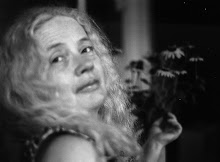Proponents of abortion often speak of their desire that there be no unwanted children. Some even wave signs, "Every child a wanted child!" I am not a proponent of abortion, for the same reasons I oppose war and capital punishment. I do not, however, support government efforts to outlaw abortion and I would do nothing to impede someone who does want an abortion. It is a personal decision.
I am also an opponent of abortions because I was an unwanted child and, now 70, I am so grateful for the life I've had - the good and the bad. I am so glad my mother was not able to kill me in utero. I am curious how many unwanted children grow up to be criminals, addicts or homeless derelicts, how many channel their pain into art, music, or other noteworthy accomplishments, and how many are able, perhaps with the help of a therapist, to make peace with their lonely childhoods and move on to have normal decent lives. I suppose there would be a good bit of overlap in those three groups, as the years go by. Perhaps some sociologist has done that research but if so, I haven't run across it.
In any case, I am qualified to speak for unwanted children. My parents were teenagers when I was born. When I was two my father took off for parts unknown. When I was three my mother dropped me off at the home of her brother and sister-in-law, who already had five children under the age of seven. Perhaps she thought I would get lost in the herd and go unnoticed. It did not work that way. Through the decades I can still remember lying in bed and hearing my Aunt Florence bellow, "RAISING YOUR SISTER'S BRAT WAS NOT PART OF THE DEAL!"
A few days later, on a sunny but cold day in late fall, my grandmother came and picked me up and took me to her house. She told me she would keep me until Edith (my mother) came to get me, but I would be expected to do chores to pay my way. Edith never came and picked me up, and over the years my grandmother, who thought she was finally through with children and could enjoy old age, got more and more angry. On the day after I graduated from high school, in the early morning, I was given a one way airplane ticket to Oklahoma, where Edith lived, and ushered onto the plane. I have en extreme phobia about heights and never expected to reach Oklahoma alive but, Lo and Behold, I did.
I lived with Edith for three months, cooking and cleaning to pay my way, as I did for my grandmother, and then went to the University of Oklahoma in Norman. In the spring of my Freshman year, I got a brief note in the mail from Edith. It read, "You will need to find your own accommodations this summer. The grocery bill went down by $11 a month after you left, and neither your grandmother or I can afford to keep you.""
That note hurt more than all the other acts of rejection I can remember. A price had been put on my head, and it was less than eleven dollars a month. Even in 1964 that wasn't much money.
So, I went down the trail of the unwanted child. I developed phobias, drank, abused drugs, ran out on bills, shoplifted, slept with strangers. I was a regular poster child for why people shouldn't have unwanted children. Nevertheless, as the years went by, as I got into my thirties, I got better. Through meditation I discovered that there is a loving Spirit in this universe who is always with me, helping me to get through whatever challenges life brings me. I discovered that Spirit, if invited, could teach me how to love and guide me in life decisions.
Over the many years since, I have written poetry books, painted, and did outreach to homeless people, the unwanted children of our harsh age. I've been a player, and I've had a life, a wonderful life. For the past 30 years I have been married to one of the greatest guys ever - another artist, who has walked with me every inch of the way. He has an organic garden and we have a wonderful, loving squnch of a cat named Gladiola.
I would say for the unwanted children of this world: Don't kill us. Give us away. Maybe even beat us or say that we can never have another bowl of ice cream for the rest of our lives, or make us wear the same ugly dress for three months, or whatever else relieves your stress at unwanted parenthood, but don't kill us. We are human beings capable of having good lives and good times.




